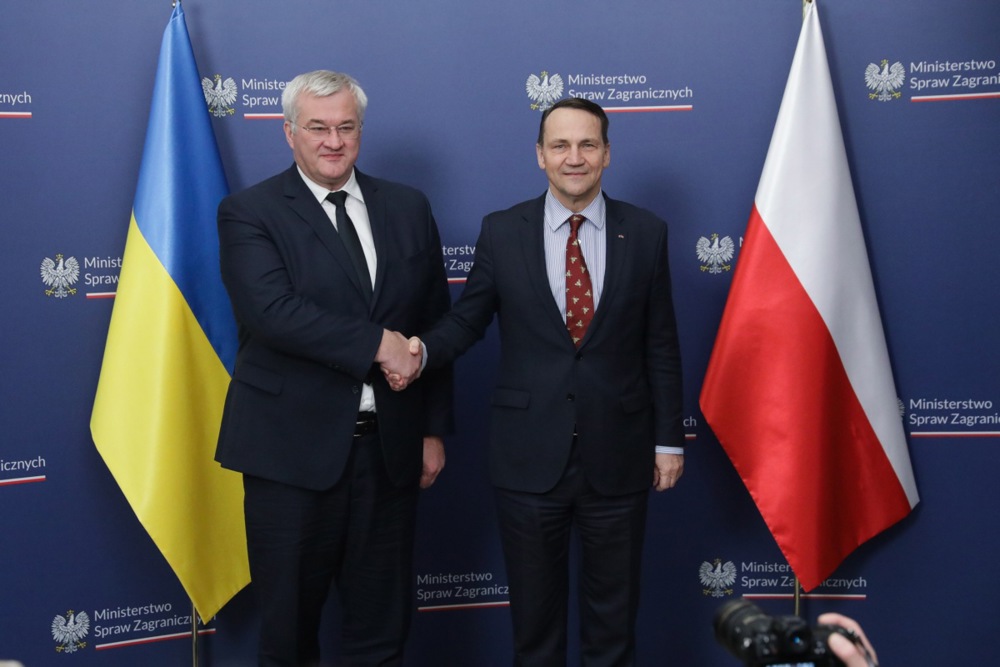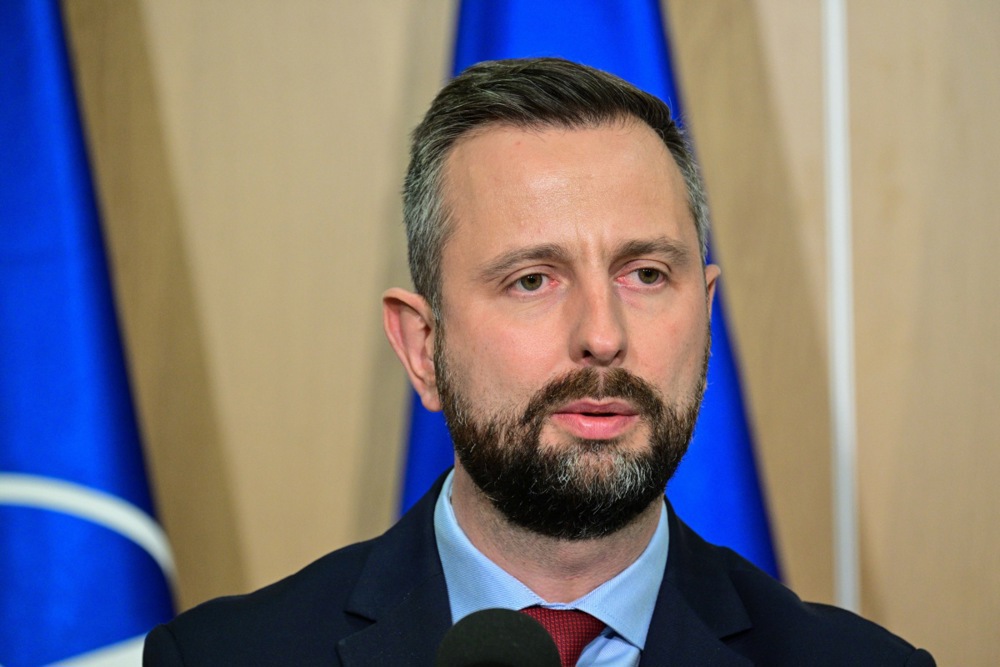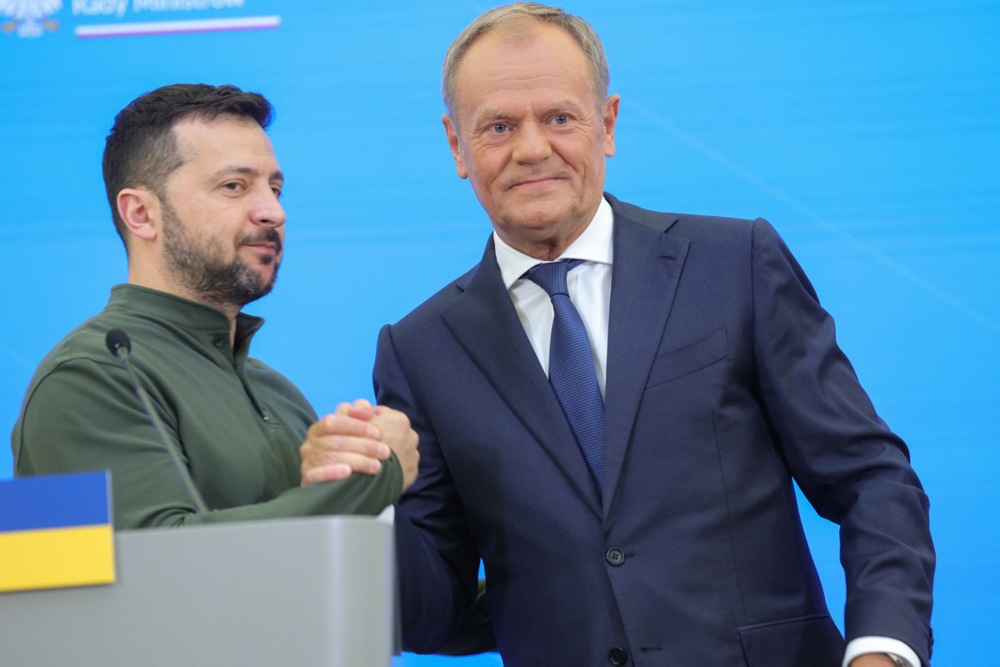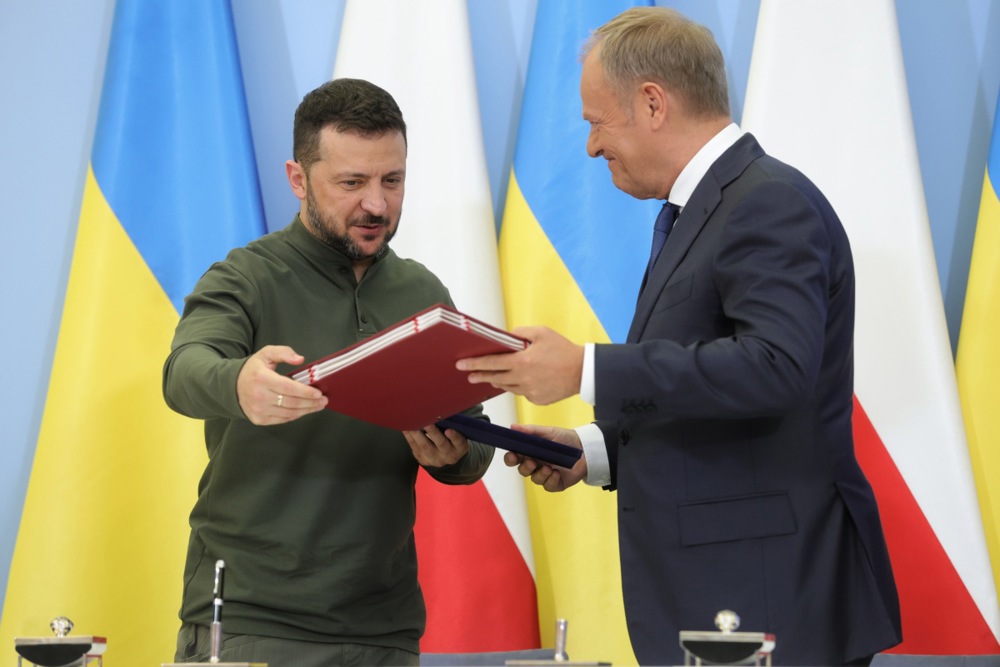More than one in five Ukrainians were considering leaving their country when the war with Russia ends, with Poland being the favourite destination, according to Polish recruitment agency Personnel Service.
The agency’s latest Polish Labour Market Barometer survey conducted among Ukrainians in their home country found that Poland remained the most popular destination for those citizens aiming to become, or return as, migrant workers.
Some 43 per cent of respondents of those who had been in the country prior to the war said they planned to return to Poland for employment.
Some 10 per cent said they wanted to settle in the country permanently in the coming years. That marked an increase of 5.5 per cent from a similar study conducted in 2023.
When asked about destinations other than Poland, almost 30 per cent of Ukrainians named Germany as their preferred destination.
Canada and the US were next, attracting 21 per cent of respondents. Belgium and the Netherlands followed, with 13 per cent indicating interest in moving there, while 9 per cent chose the UK and 7 per cent Scandinavian countries.
The study claimed, citing research from the Democratic Initiatives Foundation and the Razumkov Centre, that difficult living conditions and lack of stability were the key factors for why more than 1 million Ukrainians might want to relocate to Poland.
Overall, 21 per cent of respondents were considering emigrating from Ukraine, while 70 per cent planned to stay.
Among men, 25 per cent expressed a willingness to leave the country, compared to 17 per cent of women.
Younger Ukrainians were the most inclined to leave. One in three of those aged 18-29 expressed interest in emigration, while the percentage fell to 27 per cent among those aged 30-39 and 23 per cent among those aged 40-49.
The likelihood of leaving Ukraine continued to decrease with age, with just 16 per cent of those aged 50-59 and 9 per cent of those over 60 considering leaving Ukraine.
Residents of Eastern Ukraine, where relentless Russian aggression has had the most severe impact, were the most likely to leave.
One in four respondents from this region said they would emigrate after the war whereas in Southern Ukraine, the figure was half that.
The most commonly cited reason for moving away was limited career opportunities at home, as chosen by about 30 per cent of respondents. War-related concerns about security and inadequate social support from the state followed, both cited by 29 per cent of respondents.
More than 1 million Ukrainians arrived in Poland in the weeks following the Russian invasion of Ukraine of February 2022.
They were quickly given the right to work, social insurance and shelter on a wave of sympathy and solidarity. Most of them were the elderly and women with children.
As the war has dragged on,, old divisions over past history, the fact that many young Ukrainian males have chosen to dodge the draft in Ukraine by coming to Poland, as well farmers’ fears of Ukrainian food imports, have slowly changed public perception.
That has led to increased questioning in Polish political spheres of the high level of aid offered to Ukrainians.
In January, both the main candidates for Polish president in May’s elections, the Prime Minister Donald Tusk-allied Warsaw Mayor Rafał Trzaskowski and the Conservative (PiS) backed Karol Nawrocki, have distanced themselves from Ukraine.
Trzaskowski has backed removing universal child benefit rights from Ukrainians who were not in work.
Nawrocki has said that unless Ukraine distanced itself from the nationalist forces who during the Second World War massacred more than 100,000 Poles and allied themselves with Nazi Germany, then Ukraine should not be allowed to join either the European Union or NATO.





